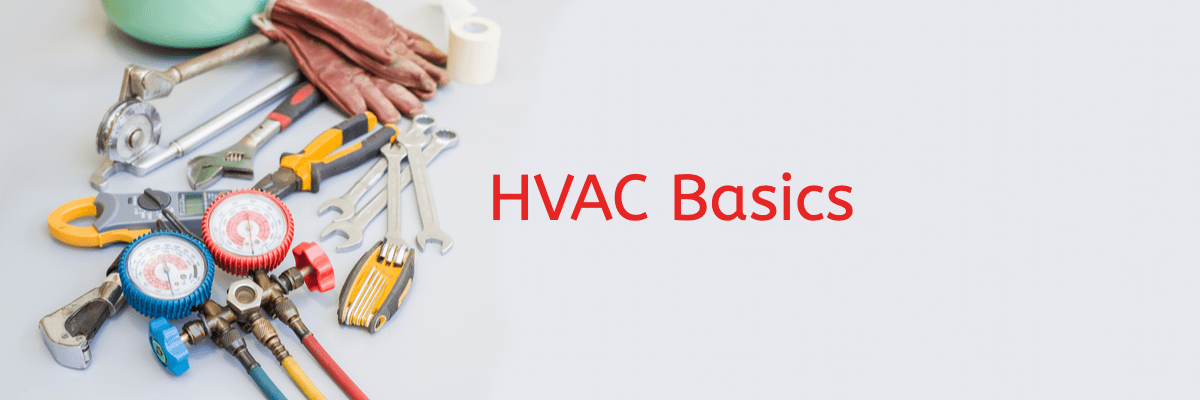If you’re planning a career as an HVAC technician (or preparing for your first interview), reading up on some basic HVAC technology to build your knowledge is a great idea. In this article, we’ll explore two types of equipment used for climate control in homes and businesses: an air conditioner and a heat pump.
While everybody is familiar with air conditioners, you might not know as much about heat pumps. They are a common type of HVAC system in warmer parts of the US, and are growing in popularity here in the Northeast. So heat pumps are something you need to know about. We’ll look at the difference between an AC vs. a heat pump, how a heat pump works, and the pros and cons.
AC vs. heat pump: what’s the difference?
When a space needs cooling in warm weather, an air conditioner and a heat pump basically do the same thing: they remove heat from the space and release it outside.
However, a heat pump can do more than that. In cold weather, a heat pump can also provide heat for the space.
A heat pump is basically an air conditioner that can also work in reverse to provide heat. In fact, heat pumps come in many of the same forms as air conditioners, including split systems, packaged systems, ducted and ductless systems.
Here’s how they work to provide both heating and cooling.
How does a heat pump work?
Chances are, you’re already familiar with how an air conditioner works, but here’s a quick review.
In simple terms, an air conditioner cools by removing heat and moisture from indoor air, and releasing the heat outdoors. It does this via the refrigeration cycle: pumping refrigerant between system components in a closed loop. As the refrigerant circulates, the pressure and state of the refrigerant changes to absorb or release heat.
Here’s how a heat pump is different. It can reverse direction and absorb heat from OUTSIDE and release it INSIDE. That means it is capable of providing heat in cooler weather.
At first glance, that might not seem to make sense. How can a heat pump absorb heat from outside in freezing temperatures? The fact is, there is still heat energy in the air even when we feel cold outdoors in the winter. A heat pump can capture it via the refrigeration cycle, and release it indoors.
However, the colder it gets, the less heat energy is available outside. That’s why heat pumps become less efficient at providing heat in very cold temperatures. Yet the technology has improved so much in recent years that heat pumps are increasingly being installed here in New York City.
You might be wondering when and why an HVAC company would recommend an AC vs. a heat pump. Let’s take a closer look at the advantages of each.
AC vs heat pump: which is better?
Heat pump advantages
Cost efficient. As compared to an air conditioning system and a furnace, a heat pump system is much more energy efficient. That means system owners will spend less money on electricity and gas or oil.
Eco-friendly. Today’s consumers care much more about the implications of their choices on the future of our planet. That’s why many choose heat pumps over a combo of air conditioners and fossil fuel burning heat sources. Heat pumps use only electricity to provide heating and cooling.
Smaller size. Especially here in New York City where space is at a premium, size matters a great deal. With a heat pump system, owners can avoid a separate appliance for heat, which saves space.
Single system. With a heat pump, there’s (usually) only one system to maintain and repair, which can lower the total cost of ownership.
As a technician, it’s helpful to know that heat pumps require the same type of regular preventative maintenance as air conditioners.
AC advantages
Lower up-front cost. The cost of equipment plus installation for a central air conditioning system is generally lower than the cost for a heat pump system. The difference can be as much as several thousand dollars.
More efficient in extreme cold. As we mentioned, heat pumps become less efficient when temperatures get very cold for extended periods. That’s why air conditioners and separate heating appliances are more common in the Northeast.
However, that’s changing due to improved heat pump technology as well as rising utility costs. Today’s heat pump systems not only work better at lower temperatures, but they have built-in second stage heating that kicks in when the temperature drops.
Build your knowledge about the HVAC & Refrigeration industry
Here are some more articles to help you gain the knowledge you need to get started and build a successful career as a technician in the HVAC and Refrigeration industry.
HVACR Career Connect NY was created to promote the exceptional quality-of-life benefits of a career in HVAC and Refrigeration service, and also to provide a clear path for getting started in the profession. In doing so, we serve as a resource for employers in the New York City metro area to find and hire smart and capable new technicians. We also serve as an educational resource to support business growth and to help service technicians succeed in their chosen profession.
